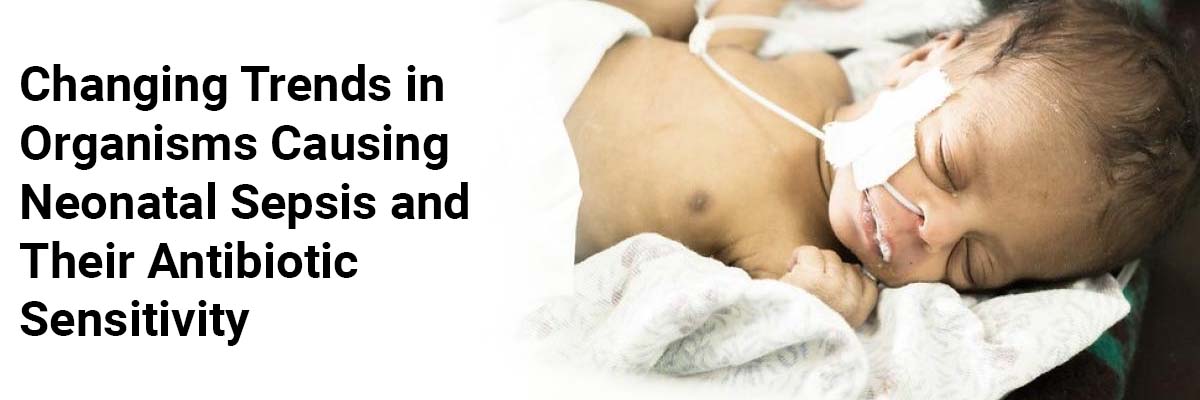
 IJCP Editorial Team
IJCP Editorial Team
Changing Trends in Organisms Causing Neonatal Sepsis and Their Antibiotic Sensitivity
Neonatal sepsis remains a
significant challenge for healthcare providers caring for newborns and infants.
Babies are particularly vulnerable to bacterial infections, with rates ranging
from 1 to 10 per 1000 live births globally.
One concerning aspect is the
increasing resistance of bacteria to antibiotics; this is even more pronounced
in developing countries due to the lack of regulations, easy access to
antibiotics, and poor sanitation.
The types of bacteria causing
neonatal sepsis are constantly changing, and the emergence of resistant strains
adds complexity to the problem.
A recent study on organisms causing
neonatal sepsis found that Klebsiella pneumoniae and Escherichia coli are the
most common gram-negative bacteria, while Coagulase-negative
Staphylococcus and Staphylococcus aureus are prevalent among gram-positive
bacteria. Fungal infections are mainly caused by Candida albicans. Alarmingly,
30% of the identified bacteria are resistant to multiple antibiotics, with a
significant portion of Klebsiella bacteria possibly producing carbapenemase.
Furthermore, all study infants tested positive for New Delhi
metallo-β-lactamase, indicating a concerning trend. The prevalence of this
enzyme in Klebsiella pneumoniae causing neonatal sepsis has increased
significantly over the past three years.
Hence, it is necessary to
monitor resistance patterns closely and use antibiotics
judiciously. Proactive measures are required to combat the growing threat
of antibiotic-resistant neonatal sepsis and protect the health of newborns
worldwide.
Govindaraju G, Rajaiah B,
Ramakrishnan S. et al. Changing Patterns of Organisms Causing
Neonatal Sepsis and Their Antimicrobial Sensitivity Profile in a Tertiary
Center - A Prospective Study. Indian J Pediatr. 2024.
https://doi.org/10.1007/s12098-024-05116-y

IJCP Editorial Team
Comprising seasoned professionals and experts from the medical field, the IJCP editorial team is dedicated to delivering timely and accurate content and thriving to provide attention-grabbing information for the readers. What sets them apart are their diverse expertise, spanning academia, research, and clinical practice, and their dedication to upholding the highest standards of quality and integrity. With a wealth of experience and a commitment to excellence, the IJCP editorial team strives to provide valuable perspectives, the latest trends, and in-depth analyses across various medical domains, all in a way that keeps you interested and engaged.




















Please login to comment on this article